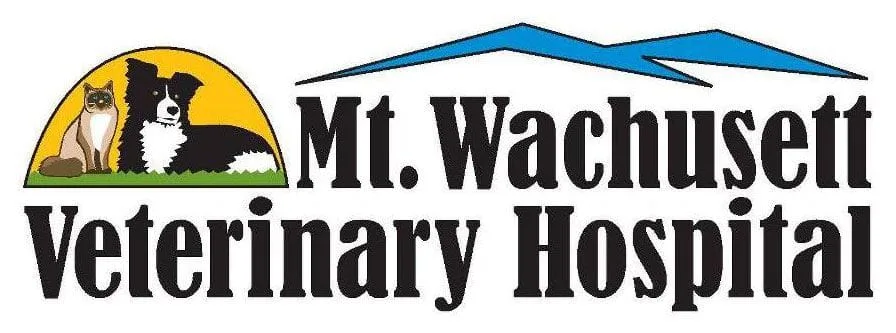
How Spaying and Neutering Your Pet Can Prevent Health Problems
Spaying and neutering surgeries not only prevent pets from reproducing, but also offer a few health benefits. Although commonly performed on kittens and puppies, these surgeries also help older animals avoid health issues.
What Happens During Spaying or Neutering?
Spaying is the procedure performed on female animals. During the surgery, your veterinarian removes the pet's uterus, fallopian tubes, and ovaries. After the procedure, your pet won't go into heat or get pregnant.
Neutering, the procedure used to sterilize males, involves removing the testes, the organs that produce sperm. When your pet no longer produces sperm, it won't be able to impregnate a female.
Spaying and neutering surgeries are usually performed on dogs, cats, rabbits, and ferrets. Small animals, including guinea pigs and rats, can also be sterilized by spaying or neutering.
Spaying and Neutering Health Benefits
Spaying or neutering reduces or eliminates the risk of your pet developing:
- Mammary Cancer. Spaying reduces the likelihood that your female pet will get mammary (breast) cancer. Estrogen, a hormone produced by the ovaries, can be a factor in mammary cancer. Removing the ovaries before your pet reaches sexual maturity helps your pet avoid this kind of cancer. The American College of Veterinary Surgeons (ACVS) reports that a dog spayed before its first heat has .5% percent chance of developing a breast tumor. A dog spayed after the first heat has an 8% risk, while spaying after the second heat results in a 26% risk. Spaying female cats before 6 months decreases their risk by seven times, according to the ACVS. Cats and male animals are less likely to develop mammary tumors than female dogs.
- Female Reproductive System Cancer and Infection. Spaying prevents uterine and ovarian cancers and also eliminates the risk your female pet will be diagnosed with pyometra, a potentially deadly uterine infection. According to the American Kennel Club, 20% of female dogs over 10 develop the infection, which has a 10% mortality rate. Pyometra also occurs in female cats and small animals.
- Testicular Cancer. Testicular cancer is the most common form of reproductive cancer in male dogs, according to The National Canine Cancer Foundation. Although the cancer is less likely to occur in cats and rabbits, these animals can also develop testicular cancer. Removing the testicles during neutering means that your pet will never develop testicular cancer.
- Male Reproductive System Problems. Neutered males are less likely to be diagnosed with prostate disease or hernias than unneutered males.
- Aplastic Anemia. Spaying female ferrets before the first heat prevents aplastic anemia, a condition that affects red blood cell production and may cause death. Dangerously high levels of estrogen are responsible for the problem. Intact females remain in heat until they mate, which allows estrogen to accumulate.
Other Advantages of Spaying and Neutering
Spaying or neutering could help your pet:
- Live Longer. Pets that have been spayed or neutered tend to live longer than unsterilized animals. According to Banfield Pet Hospitals' State of Pet Health Report, neutered male dogs live 18% longer and female dogs live 23% longer than unaltered dogs. The Report also noted that spayed cats live 39% longer and neutered cats live 62% longer.
- Avoid Injuries. Your pet is more likely to roam the streets looking for love if it hasn't been spayed or neutered. Even animals that normally remain inside or close to home may bolt if the opportunity arises. Unfortunately, that may mean that your pet could be hit by a car or hurt by an unkind person. Spaying and neutering eliminate these urges and may help your furry friend stay safe.
When Should You Spay or Neuter Your Pet?
Contrary to popular belief, female pets don't have to experience a heat cycle before spaying. In fact, spaying is best performed before the first heat. The American Animal Hospital Association (AAHA) recommends spaying or neutering cats by 5 months of age and small breed dogs at 5 to 6 months. Large breed dogs are usually spayed or neutered between 9 and 15 months.
Protect your pet's health with spaying or neutering. Contact our office to schedule an appointment for your pet.
Sources:
American College of Veterinary Surgeons: Mammary Tumors
https://www.acvs.org/small-animal/mammary-tumors
The National Canine Cancer Foundation: Dog Testicular Cancer Signs, Symptoms and Treatments
https://wearethecure.org/learn-more-about-canine-cancer/canine-cancer-library/testicular-tumors/
American Kennel Club: Preserving a Bloodline: Smart Steps to Addressing Canine Pyometra
https://www.akc.org/expert-advice/health/preventing-and-addressing-pyometra-in-breeding-bitches/
Banfield Pet Hospital: State of Pet Health 2013 Report
https://www.humanesociety.org/sites/default/files/docs/Banfield-State-of-Pet-Health-Report_2013.pdf
American Animal Hospital Association: When Should I Spay or Neuter My Pet?
https://www.aaha.org/your-pet/pet-owner-education/ask-aaha/spay-or-neuter/
